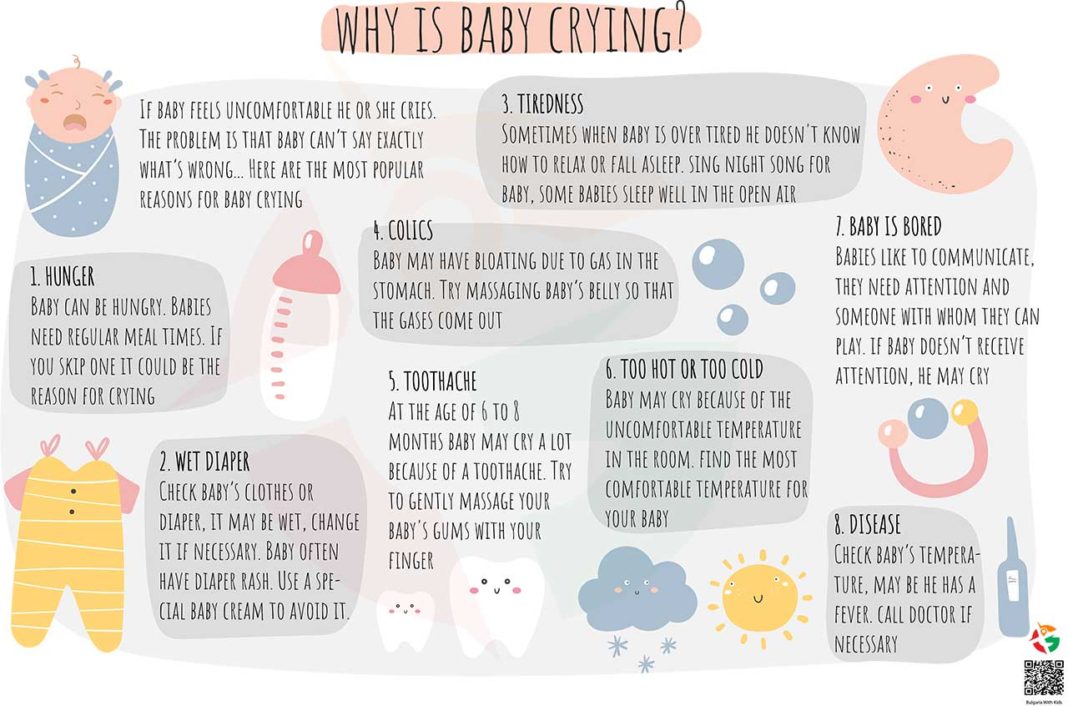Understanding why a baby is crying sometimes can be challenging for parents.
Babies communicate their discomfort through crying, but pinpointing the exact reason can be difficult. Here are some common reasons why a baby might cry and the initial steps you can take to comfort them:
- Hunger: Babies need regular meals. If a meal is skipped, hunger might be the reason for crying.
- Wet Diaper: Check if the baby’s diaper or clothes are wet. Change them if necessary. Use special baby cream to prevent diaper rash.
- Tiredness: Babies may cry when overtired and can’t relax or fall asleep. Singing to them can help, and some babies sleep well in the open air.
- Colics: Gas in the stomach can cause bloating and discomfort. Massaging the baby’s belly may help relieve the gas.
- Toothache: Babies might cry between 6 and 8 months due to teething pain. Gently massaging the gums can help.
- Too Hot or Too Cold: A baby can cry if the room temperature is uncomfortable. Find the most comfortable temperature for the baby.
- Baby is Bored: Babies and kids need attention and someone to play with. Lack of interaction can cause them to cry.
- Crying during take-off and landing: Babies and small kids may cry during takeoff and landing due to the pressure changes in their ears. To help alleviate their discomfort, you can offer them something to suck on, like a pacifier or a bottle, or encourage older kids to chew gum or yawn to help equalize the pressure.
- Disease: Check if the baby has a fever. If so, call a doctor for necessary advice.
While these tips provide initial guidance on why a baby might be crying, it’s important to remember that each baby is unique. If your baby continues to cry despite addressing these common issues, or if you suspect something more serious, consult with a doctor to ensure your baby’s health and well-being. Call 112 for assistance in emergencies!
What to Do if a Bee Stings You or Your Baby?
The information provided in the health-related guides is for general informational purposes only. It is not intended as, nor should it be considered, a substitute for professional medical advice, diagnosis, or treatment. Always seek the advice of your physician or other qualified health provider with any questions you may have regarding a medical condition. Never disregard professional medical advice or delay seeking it because of something you have read in these guides. If you think you may have a medical emergency, call your doctor or emergency services immediately.



